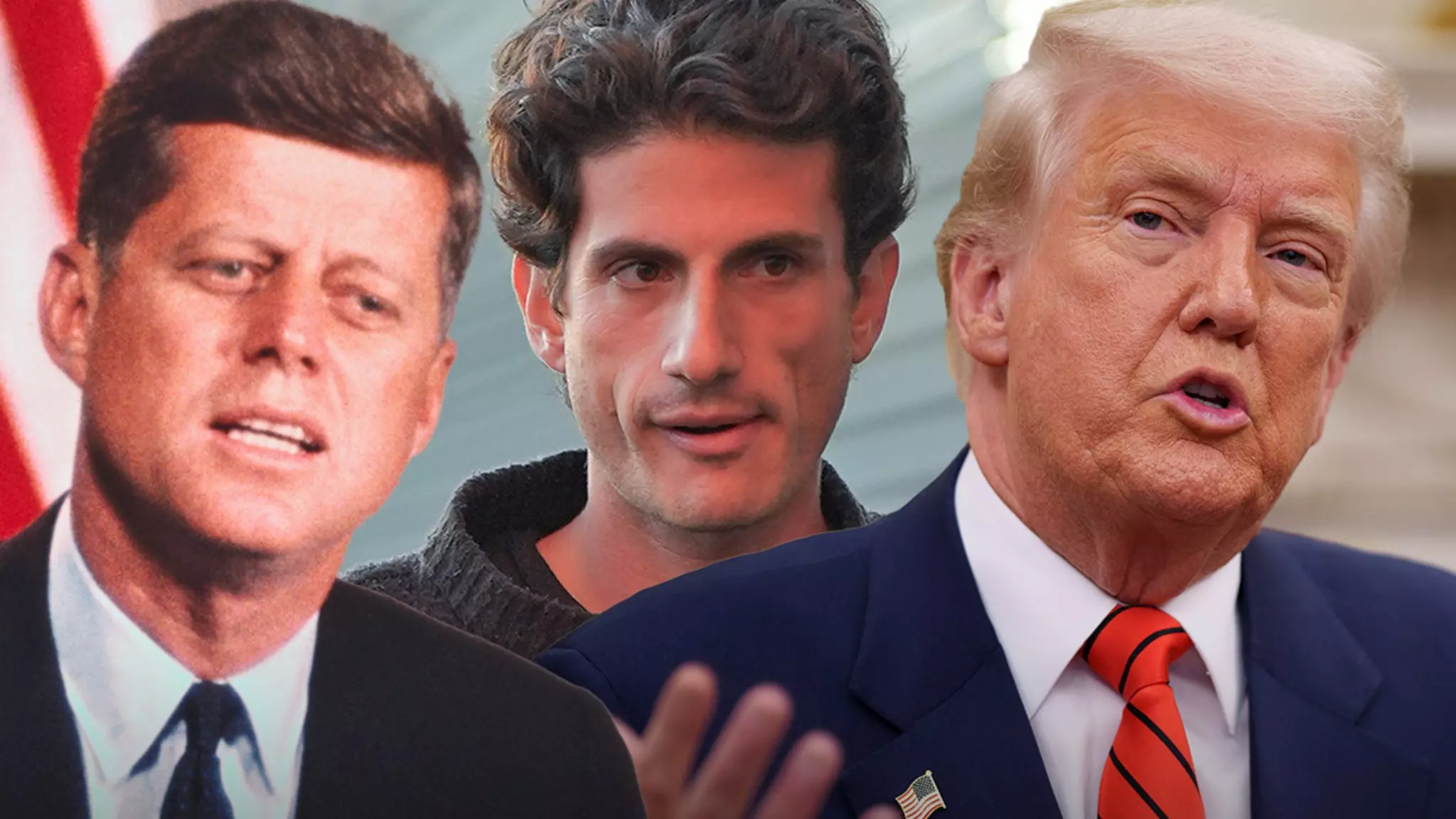When history feels within reach, the emotional response of those tied to it can often become a flashpoint for public discourse. Recently, Jack Schlossberg, the grandson of the iconic John F. Kennedy, manifested his desperation and indignation about the handling of JFK’s assassination files by the Trump administration. Schlossberg’s impassioned reaction, primarily conveyed through social media, reveals not only his personal stake in these documents but also highlights a broader critique of how political actions impact family legacies.
The release of approximately 80,000 pages of JFK-related documents came as a shock to Schlossberg and most of the Kennedy family—except for Robert F. Kennedy Jr. This notable omission raises questions about transparency and the responsibilities of government towards familial legacies. Who gets to access the past first, and what does that say about the integrity of governance? For Schlossberg, this was more than mere oversight. It was a perceived affront to the Kennedy family’s collective narrative.
A Sea of Conspiracy
From the moment of JFK’s assassination on November 22, 1963, conspiracy theories have swirled ceaselessly. Many fervently argue that Lee Harvey Oswald acted as a scapegoat, wrongly framed for a crime rooted in darker, more institutional machinations. Schlossberg’s insistence that the release of documents should have been handled with greater care reflects a longing for control over a narrative that has often been manipulated for political gain. His plea for respect towards his grandfather’s legacy transforms the dialogue surrounding JFK from historical analysis into a personal battle for familial dignity.
Moreover, the reaction to the content of the documents also brings to light the intense scrutiny surrounding JFK’s life and presidency. While initial assessments have indicated nothing groundbreaking, the anticipation surrounding these files reveals a societal obsession with uncovering hidden truths. Schlossberg’s frustration with the Trump administration is virtually a confrontation with the conspiracy theories that continue to fester in the public consciousness—a desire to dispel misinformation while asserting the truth his family has lived with for decades.
Media Intervention and Public Discourse
Schlossberg’s criticisms did not stop at the administration; he also took aim at media outlets, particularly CNN. His vehement complaint that their coverage was lacking reflects a deeper concern about narrative shaping in the age of sensationalism. In his Instagram video, Schlossberg’s raw emotion came through as he decried a focus on the trivial over substantive issues. This raises an important question about the role of media in shaping the lineage of historical events—it becomes a battleground for competing narratives.
His critique is well-founded; the media has often reduced complex histories into sound bites and sensational headlines, leading to a fragmented understanding of events. Schlossberg’s discontent serves as a rallying cry for those who believe the integrity of history should not be sacrificed at the altar of quick clicks and viewer engagement.
The Personal Meets Political
In the complex tapestry of history, the personal often intersects with the political. Jack Schlossberg’s outcry is not merely about files and family; it embodies the struggle between preserving legacies and confronting the realities of political maneuvering. As he grapples with the implications of these newly released documents, his struggle resonates as emblematic of broader societal tensions concerning legacy, truth, and the past—issues that impact not only the Kennedy family but the very fabric of American political history.

